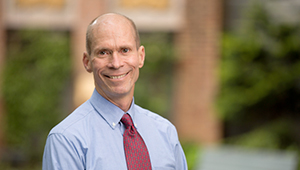Bebe Rexha can call herself whatever she wants

The singer-songwriter’s acknowledging that she has bipolar disorder offers a valuable reminder of how actions speak louder than words.
By Gregory Simon, MD, MPH, a psychiatrist at Kaiser Permanente Washington and a senior investigator at Kaiser Permanente Washington Health Research Institute. He leads the Mental Health Research Network, a consortium of research centers affiliated with 13 large health systems across the United States.
A few weeks ago, the rock star Bebe Rexha told the world via Twitter:
I cheered about a talented and successful woman announcing that she is not ashamed to live with bipolar disorder. But I initially paused when reading the words “I’m bipolar.” That’s the sort of language that many mental health advocates discourage.
In the past, language about mental health conditions often seemed to reduce people to diagnoses. People used to say (without thinking) that a person “is bipolar” or “is schizophrenic.” Or, even more reductionistic, we would refer to someone as “a bipolar” or “a schizophrenic.”
The mental health community has sought to overcome such stereotyping by encouraging “people-first language,” which aims to communicate that people with bipolar disorder are — first and foremost — people. At the same time that someone is a person with bipolar disorder, they’re also a person with an interesting job. Or a person with an adorable cat. Or a person with a fantastic singing and song-writing talent. Or a person with a neighbor who uses the leaf blower too early on Sunday morning.
People who have bipolar disorder have lots of other ordinary and extraordinary things in their lives, just like other people do.
But it’s really none of my business how Bebe Rexha wants to name or define herself. If she’s trying to break down stigma, then it may be helpful to confront it as directly as possible. Many marginalized groups have made a point of re-claiming or re-purposing labels that were historically pejorative or stigmatizing. The “Mad Pride” movement of mental health consumers is one example. Launched in the early 1990s, it seeks to change the connotation of mental health slang, such as “mad” and “nuts,” in much the same way that gay-rights activists have embraced the word “queer” as a point of pride rather than a slur.
As for me, though, I’ll stick with the people-first language. I’ll be careful to say that a person has bipolar disorder or lives with bipolar disorder. And if one of my patients says that they are bipolar, I might even explain why I don’t say it that way. But I certainly wouldn’t tell them — or Bebe Rexha — what words to use. After all, the anti-stigma campaign at Kaiser Permanente is called “Find Your Words,” rather than “Use Our Words.” Every person can use their own words to talk about their own mental health.
The right words are the ones that make it easiest to speak up.
suicide prevention

To prevent gun suicides, new study seeks to improve primary care intervention
Julie Richards’ research project is one of the first three funded by Kaiser Permanente’s Firearm Injury Prevention Task Force.
risk assessment

Suicide prevention: Research network finds new way to predict risk
A study led by KPWHRI researches uses machine learning to determine which patients are in greatest need of intervention.
Honors

Dr. Greg Simon wins national suicide prevention award
Kaiser Permanente physician-scientist will receive American Foundation for Suicide Prevention’s Lifesavers Research Award.


